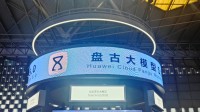In the dynamic world of game – related AI technologies, a recent storm has emerged. There have been accusations that Huawei’s Pangu model has copied Alibaba’s Tongyi Qianwen. This controversy has not only caught the attention of the tech community but also has significant implications for the game industry, where AI is increasingly playing a crucial role in game development, from creating intelligent NPCs to enhancing game storylines.
Huawei has wasted no time in responding to these claims. The company firmly denies the accusations, stating that Pangu is the result of its own independent research and development efforts. Huawei emphasizes that its R & D team has spent countless hours in exploring and innovating in the field of artificial intelligence, using its own unique algorithms and techniques.
In the game industry, AI models like Pangu and Tongyi Qianwen have the potential to revolutionize game design. For example, they can generate more immersive and dynamic game worlds. However, such accusations can cause confusion among game developers who are looking to integrate these technologies into their projects.
Huawei’s response is an attempt to clear the air and restore confidence in its technology. The company points out that the development of Pangu is based on its long – term investment in AI research, and it adheres to strict ethical and legal standards in its R & D process.
As the game industry continues to evolve, the use of AI will only become more prevalent. It is essential for companies to protect their intellectual property rights while also promoting healthy competition. Whether these accusations will have a long – term impact on the adoption of Pangu in the game industry remains to be seen. But for now, Huawei’s strong response shows its determination to stand by its technology.
Huawei Pangu, Alibaba Tongyi Qianwen, AI in gaming, plagiarism accusations, game development
